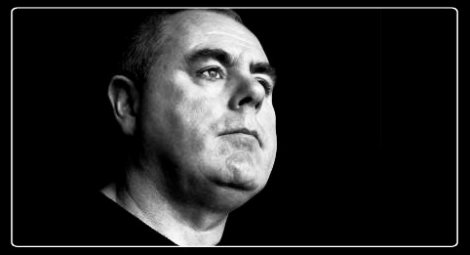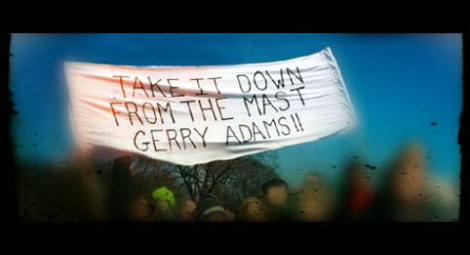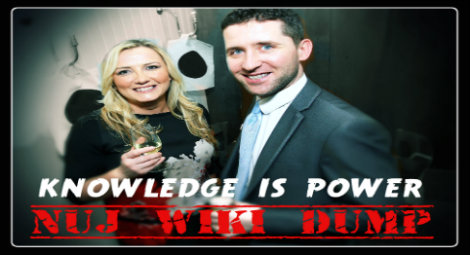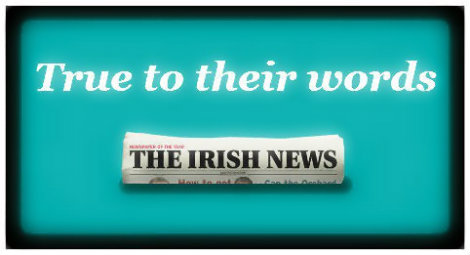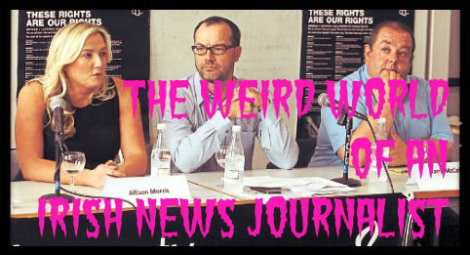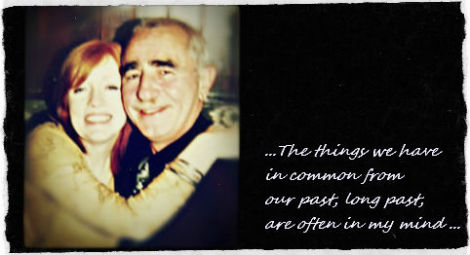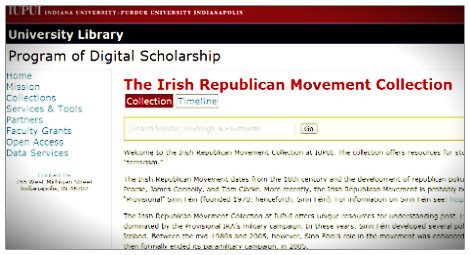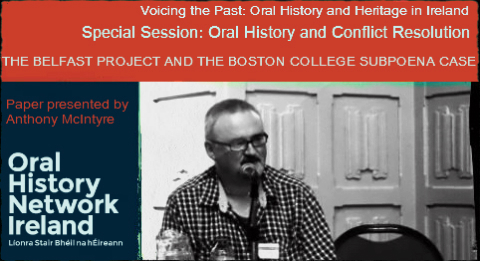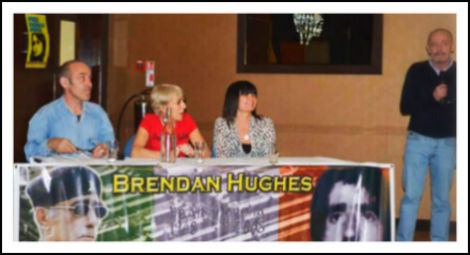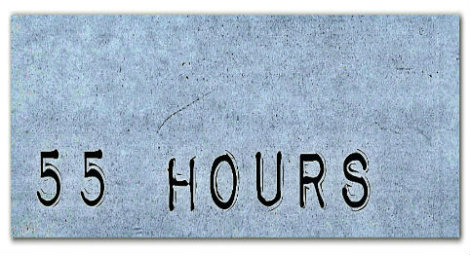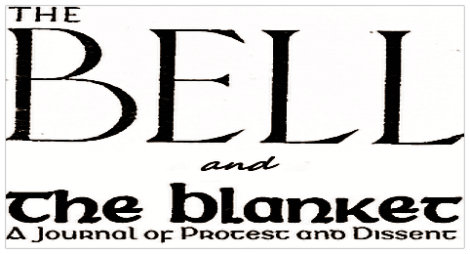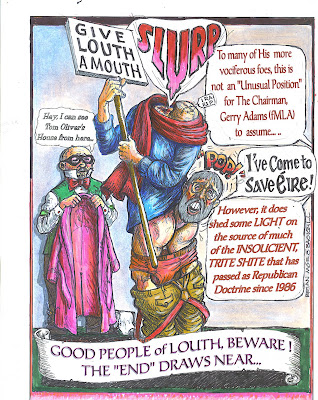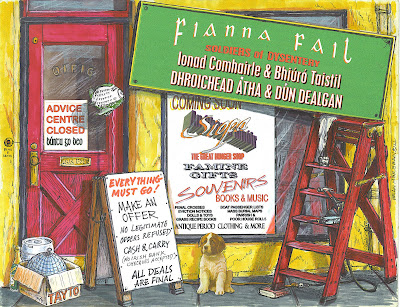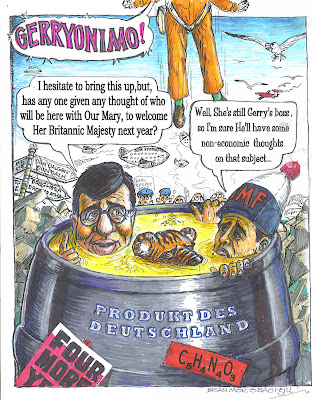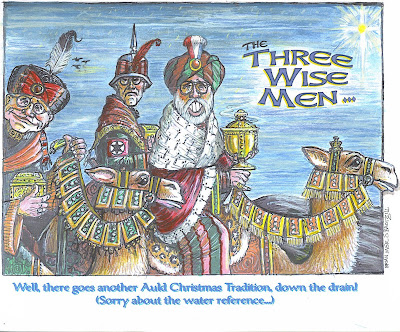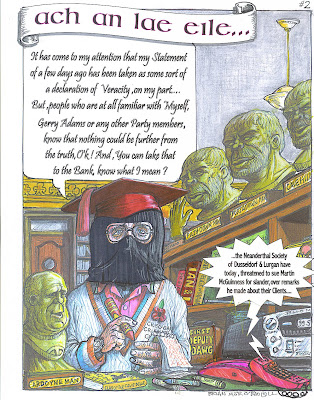Provisional Sinn Fein must lurch to the Right wing if it is to hold the balance of power in both Leinster House and Stormont's Parliament Buildings. So maintains guest writer, Radical Unionist and ex-Blanketeer, Dr John Coulter.
Will the real Sinn Fein please stand up? King Gerry’s Louth invasion is sending out mixed signals to potential republican voters. Most Southern voters see the Shinners as a hardline Left wing outfit, to be regarded with even more suspicion than the almost now defunct Stickies, namely the Workers’ Party. To kick the rival moderate SDLP in the nuts, Northern Sinn Fein has got to boast how it is ‘Proud To Be A Provie’.
So are the Shinners saying one thing in the Republic, yet totally singing to a different tune in the North? Is Sinn Fein socialist first, or nationalist first?
King Gerry needs to avoid the fatal pitfall that befell his arch rival – Ian Paisley senior – and become branded as the Grand Old Duke of York who led his men up and hill and down again.
This year marks the 30th anniversary of Big Paisley’s first major outing as
the Grand Duke. He was to the fore in forming the loyalist vigilante group, The
Third Force. It flopped. This year also sees the silver jubilee of the forming of another Protestant paramilitary group, the red-bereted Ulster Resistance – again with Paisley senior as a key supporter. The DUP eventually abandoned the Resistance when the chips got too hot.
The end result was that when Paisley himself did something very positive –
forming the Chuckle Brothers with the Shinners – his once DUP faithful turned
traitor and forced him to quit as First Minister, DUP boss and Free Presbyterian
Moderator. If the Shinners, north and south, are not singing from the same republican hymn sheet, King Gerry could find himself de-throned as party president come May.
Gerry has only one option. He must do what former First Minister David
Trimble of the now almost defunct Ulster Unionists should have done – swing Sinn Fein to the Radical Right. Irish Labour will only become a major player in the Dail because it is not Fianna Fail. The SDLP is bashing the Shinners at every turn just as Jimmy Allister’s TUV are thumping Robbo’s DUP. The SDLP and TUV have no chance of becoming a significant force in Stormont. Their shouts and rants are to cover up their lack of constructive policies.
Gerry needs to resurrect the famous General Eoin O’Duffy’s Blueshirts. Ireland needs a disciplined party capable of bringing economic stability and law and order to society. Ironically, Sinn Fein should take as its example two 1930s movements it was once bitterly opposed to – Cumann na nGaedheal, once protected by Blueshirts, and O’Duffy’s own organisation, the National Corporate Party. Ireland needs all-island discipline and security on the social and economic fronts. A hardline Right-wing Sinn Fein party can deliver this.
Former Orange Order boss and MP Rev Martin Smyth once branded Sinn Fein as a fascist movement. In an interview, he told me: “Basically fascism is a right wing dictatorship with a government controlled economy and no opposition. That mantle of fascism belongs in Ulster more to Sinn Fein than to loyalists.”
In 1918, Sinn Fein was once the dominant party on this island. Eighty years
later, the Good Friday Agreement set the stage for an all-island agenda.
If the Shinners want to realistically dictate policy in both Stormont and the
Dail, they must mothball the ‘RA, dump ex-jailbird candidates and become
Ireland’s new Blueshirts.
Sounds a radical solution – but if Sinn Fein can run the North with the DUP,
it must become a Right-wing version of the late John Turnly’s Irish Independence Party.














